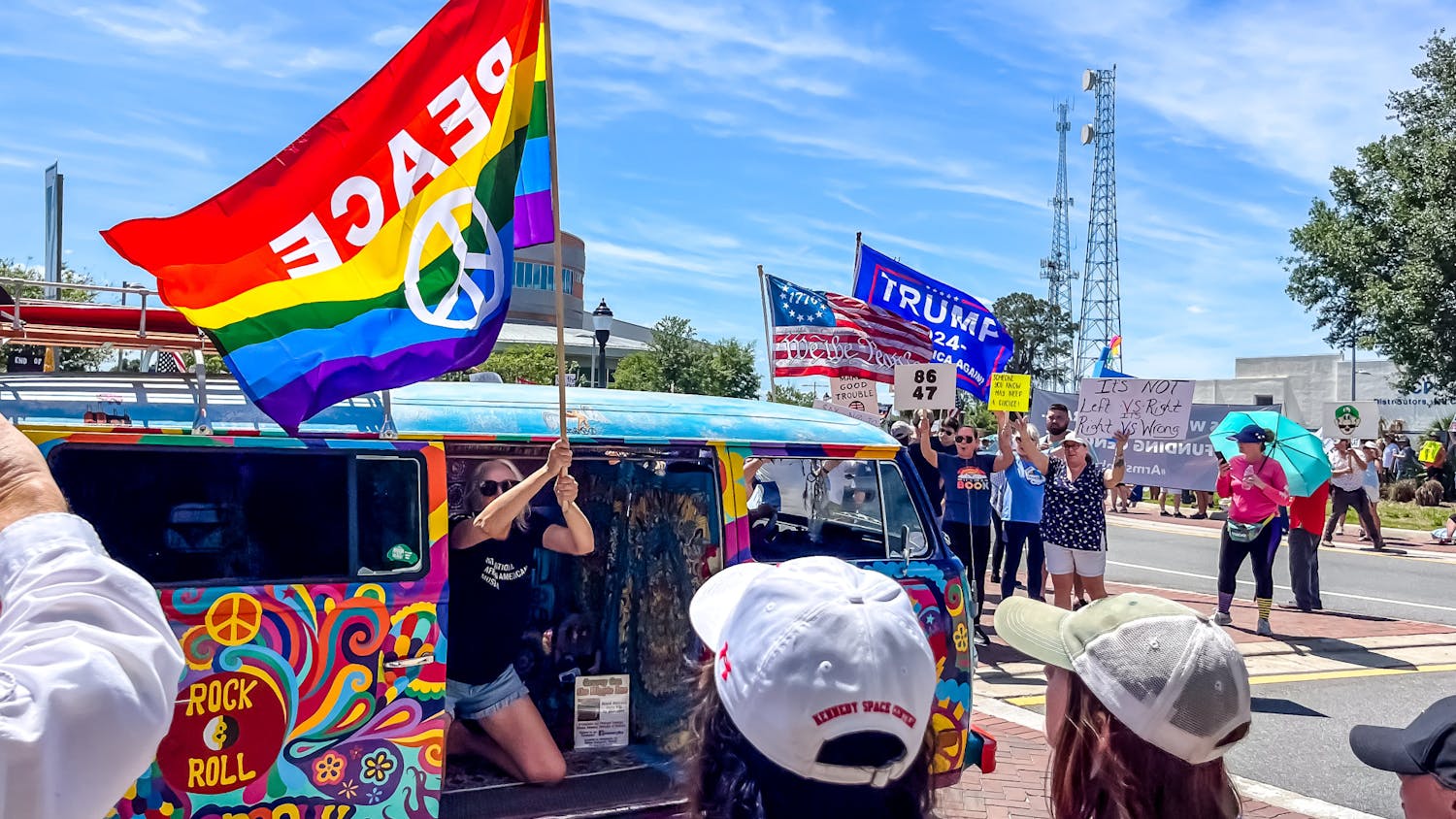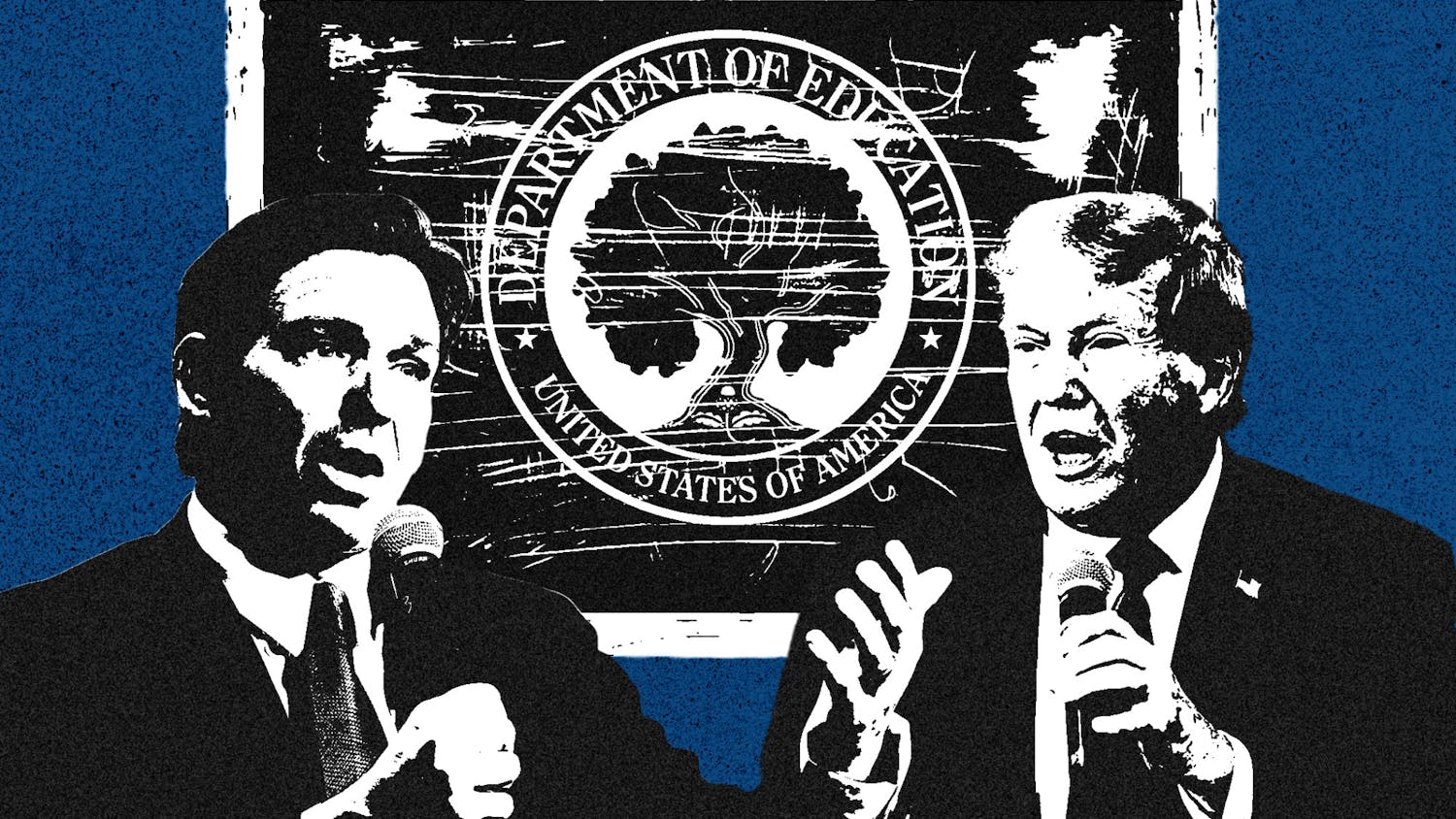The day Giancarlo Tejeda learned he would receive DACA, his mother wept.
She and her husband had brought Tejeda and his brother over from Colombia when Tejeda was only 3 years old, hoping for a better life. Tejeda said his family had more peace of mind after receiving Deferred Action for Childhood Arrivals, a program that lets students brought to the U.S. as young children work and attend school.
But now Tejeda’s peace of mind is gone.
“We’re seeing our fears come to life,” the 20-year-old UF biomedical engineering junior said. “We’re fearing for our lives as we know it and our families.”
Sources close to President Donald Trump have said he plans to end DACA, according to Politico. The White House has not yet announced a formal decision.
There are nearly 790,000 people who benefit from DACA, according to Pew Research Center. UF spokesperson Janine Sikes wrote in an email that UF does not track how many of its students have DACA. Sikes said the children of undocumented parents can receive in-state tuition if they meet certain requirements, like graduating from a Florida high school.
DACA offers a chance to go about life without fear of deportation, Tejeda said. To benefit from the program, the recipients fill out an application and pay a fee. The program needs to be renewed every two years, according to the Pew Center. Tejeda said it cost nearly $2,000 to arrange his DACA protection, between the cost of applying and hiring lawyers who helped.
Having DACA also gives him a chance to follow his dream of being an Alzheimer’s researcher, he said.
Tejeda said he and other undocumented students now feel scared and helpless.
“Basically now we’re living exactly the things we feared when Trump got elected,” he said.
Diana Moreno, the assistant director of Multicultural and Diversity Affairs, said she’s seen more stress among students, especially in the past weeks. Students have reached out asking for advice or resources.
For Moreno, the fear and uncertainty of being undocumented is a fresh memory.
Moreno came to the U.S. from Ecuador in 1999, when she was 11. Her swearing-in ceremony for citizenship will be Sept. 21 — 18 years after her family brought her over.
“These students are the hardest-working and most resilient students I have the pleasure to work with,” Moreno said through tears. “And I just really hope personally that I will have the chance to continue working with them and they continue contributing their talents to our university.”
She said there are unique struggles for undocumented students. They are unable to receive federal financial aid like most other students, she said. Other challenges are more emotional.
Hernandez, a 19-year-old undocumented UF student who requested her full name be omitted, can’t stop thinking about the possibility of losing DACA.
Hernandez was born in Mexico and crossed the border with her parents when she was 3. The only two memories she has of Mexico are laying in her bed with rats underneath and jumping on a trampoline.
Growing up in a majority-white area, Hernandez was always scared of revealing her undocumented status. In high school, she worried people would report her or her family.
At UF, Hernandez began to share her story. When Donald Trump’s candidacy heated up, though, she stopped telling people.
“I think DACA is important because it gives young people that didn’t have any control about whether or not they would come to this country, but are still grateful that they did come to this country, the opportunity to prosper in life,” she said.
Growing up, Hernandez was never sure if she would make it to college — DACA gave her that chance, she said. She now hopes to become a doctor who takes care of newborns. If DACA is removed, Hernandez doesn’t know what will happen to her or her family.
“It’s a horrible thing to go through,” she said.
Her hope is that if DACA is removed, Congress will pass a law granting the recipients protection.
“We are human,” she said. “We really should be treated like humans. This is the only country we’ve ever known since we were young, and we don’t want to make it worse. We want to make it better.”





